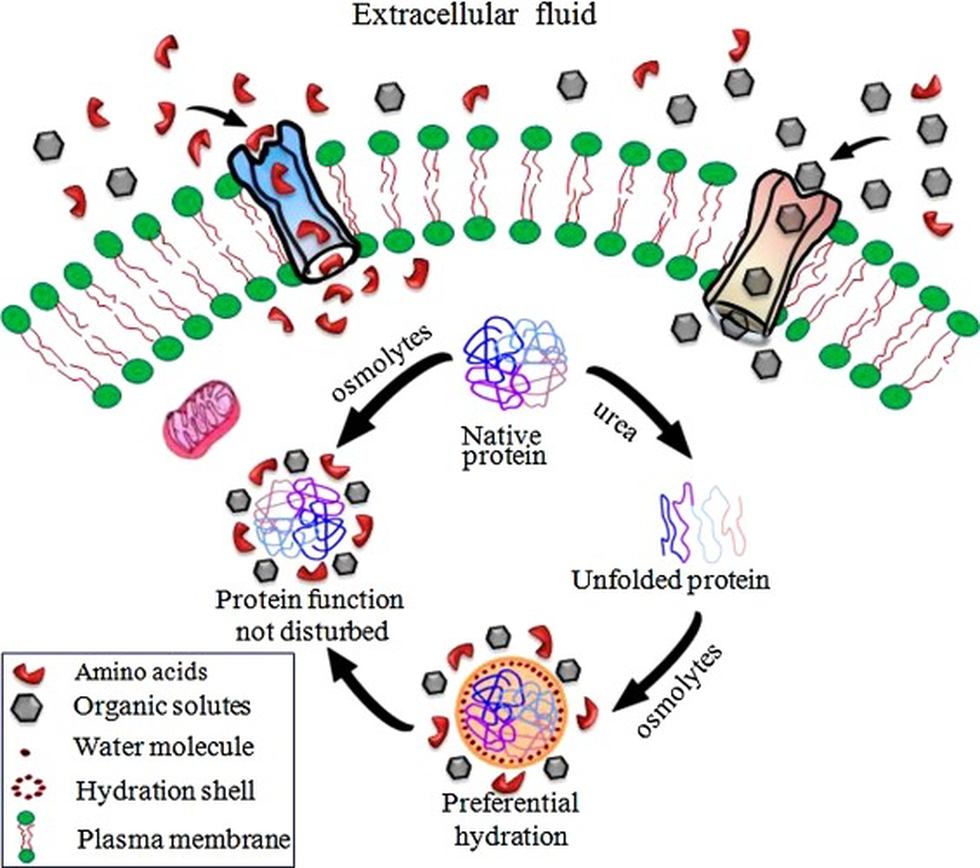About Osmolytes:
- These are low molecular weight organic molecules usually built up in tissues at a quite high amount during stress or any pathological condition.
- These are small molecules that help cells survive stress by stabilizing proteins and preventing them from misfolding.
- They help proteins maintain their structure and function under stressful conditions
- Misfolded proteins can’t perform their functions properly, leading to diseases.
- Osmolytes are crucial in maintaining the stability of protein structures, making them potential targets for new drugs.
Key facts about Parkinson’s disease
- It is a progressive neurological disorder that affects the nervous system and the parts of the body controlled by the nerves.
- The risk of developing Parkinson’s disease naturally increases with age, and the average age at which it starts is 60 years old.
- Many studies have suggested that men are more likely to be affected by Parkinson’s than women.
- Cause:
- It is caused by the degeneration of nerve cells in the part of the brain called the substantia nigra, which controls movement.
- These nerve cells die or become impaired, losing the ability to produce an important chemical called dopamine.
